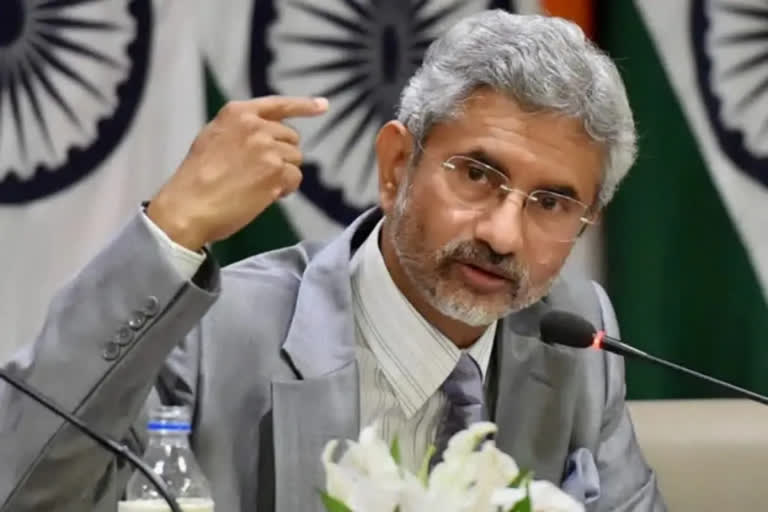New Delhi: The situation along the Line of Actual Control (LAC) in eastern Ladakh remains "very fragile" and is "quite dangerous" in military assessment because of close deployments of troops by both India and China in some pockets, though "substantial" progress has been made in the disengagement process in many areas, External Affairs Minister S Jaishankar said on Saturday.
Jaishankar also said he and then Chinese foreign minister Wang Yi reached an in-principle agreement in September 2020 on how to resolve the issue and that it is for China to deliver on what was agreed to. In an interactive session at the media Conclave, the external affairs minister made it clear that the relationship between the two neighbouring countries cannot return to normal until "these problems" are sorted out.
The Indian and Chinese troops are locked in a nearly-three-year confrontation at certain friction points in eastern Ladakh, even as the two sides have completed disengagement of troops from several areas, following extensive diplomatic and military talks. "This is a very, I would say, challenging and abnormal phase in our ties with China. Why I say that is because, from 1988, when Rajiv Gandhi went there, till 2020, the understanding was that peace and tranquillity on the border would be maintained," Jaishankar said.
The external affairs minister also referred to agreements between the two sides not to bring large forces to the border and said a "very specific" set of understandings and even protocols were put in place regarding the handling of various situations. Jaishankar said the Chinese violated the agreements in 2020, the consequences of which were seen in the Galwan Valley and other areas.
"We have deployed our troops, we have stood our ground and the situation, to my mind, still remains very fragile because there are places where our deployments are very close up and in military assessment, actually therefore, quite dangerous," he said. "Now we have made substantial progress when it comes to disengagement in many areas. There are many areas where we have ongoing discussions. It is a painstaking job and we will do that," he said.
"We have made it very clear to the Chinese that we cannot have a breach of peace and tranquillity. You cannot violate agreements and then want the rest of the relationship to continue as though nothing happened. That is just not tenable," Jaishankar added. On February 22, India and China held in-person diplomatic talks in Beijing and discussed proposals for disengagement at the remaining friction points along the LAC in eastern Ladakh in an "open and constructive manner".
The meeting took place under the framework of the Working Mechanism for Consultation and Coordination on India-China Border Affairs (WMCC). The eastern Ladakh border standoff erupted on May 5, 2020, following a violent clash in the Pangong lake area. The ties between the two countries nosedived significantly following the fierce clash in the Galwan Valley in June 2020 that marked the most serious military conflict between the two sides in decades. As a result of a series of military and diplomatic talks, the two sides completed the disengagement process in 2021 on the north and south banks of the Pangong lake and in the Gogra area. (PTI)
(This story has not been edited by ETV Bharat and is auto-generated from a syndicated feed.)



